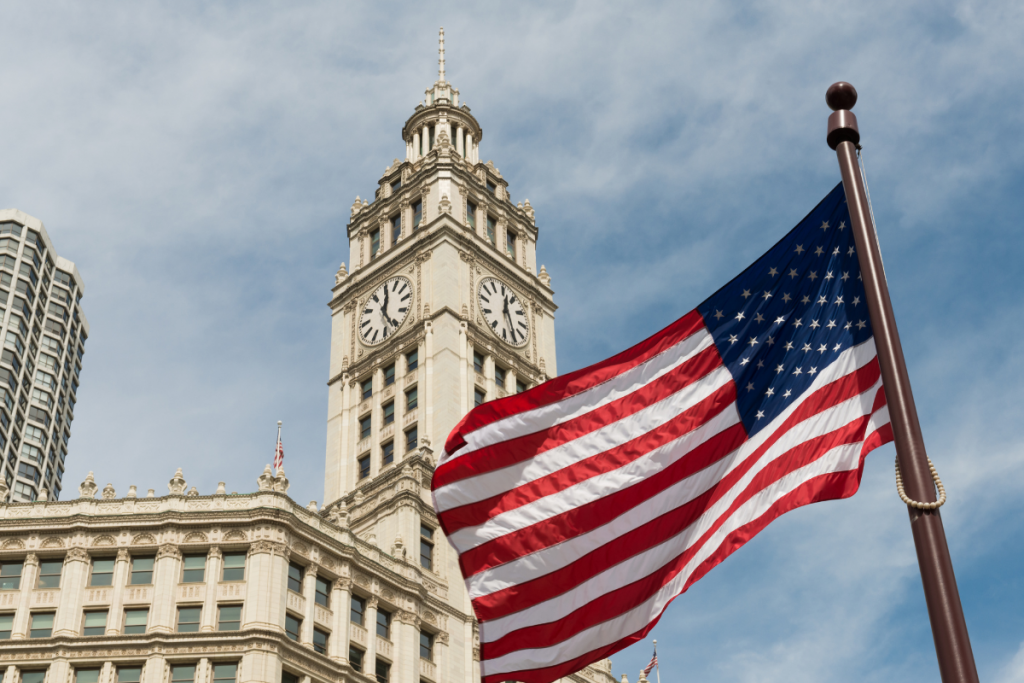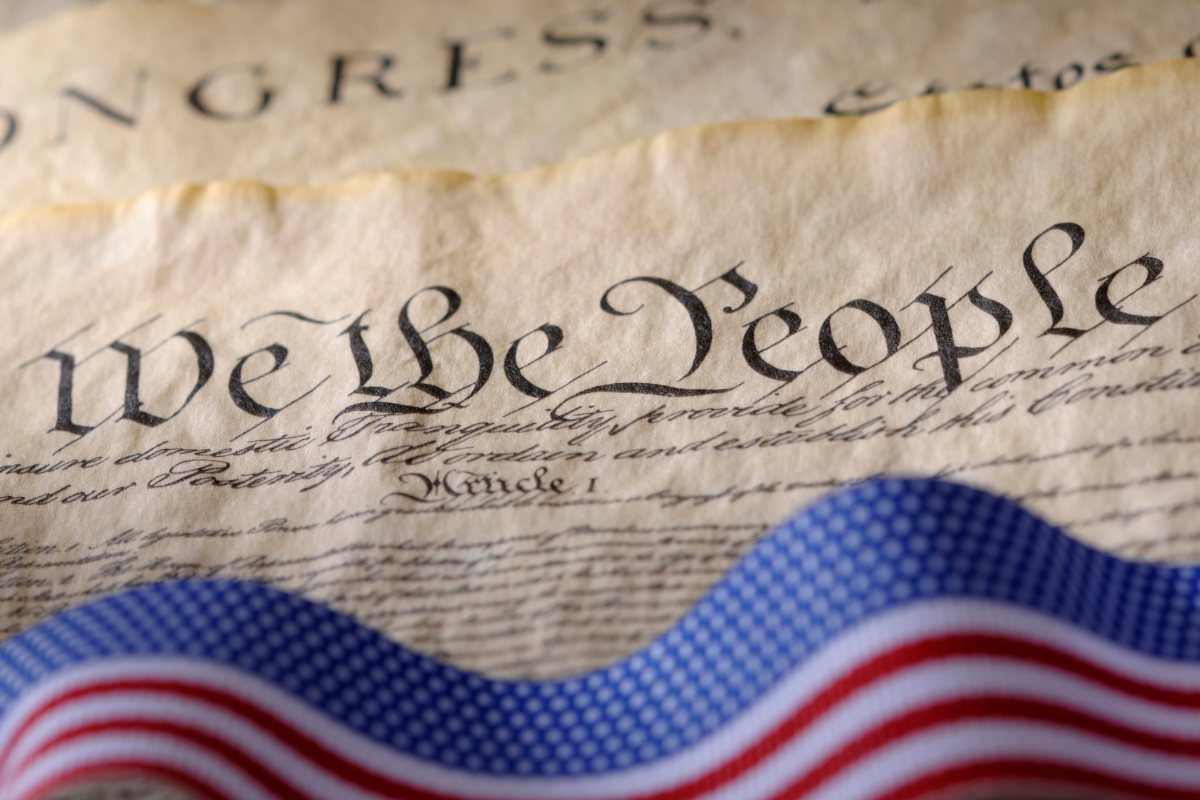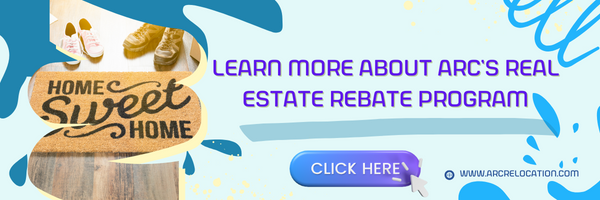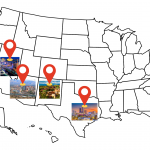Relocating to a new country is always a huge life transition filled with excitement and challenges. If you’re planning on moving to the United States, there’s a lot to prepare for and things you need to understand before taking the plunge.
This guide covers all the must-know tips for anyone moving to America, the land of opportunity, that has beckoned immigrants from across the globe for centuries with its promises of freedom, prosperity, and a chance to pursue your dreams.
Technical Tips to Follow When Relocating to the US
Before we dive into the cultural aspects, let’s get the tedious but crucial paperwork and logistics out of the way first.
Plan Your Move
Deciding where exactly to live when emigrating to America is pivotal, as the country is massive with lots of diversity between cities and states.
Do plenty of research on areas that fit your preferred lifestyle, job opportunities, and family needs. Will you thrive in a megacity like New York or Los Angeles? Or does a more suburban/rural environment like the Midwest appeal more? The options are limitless.
Speaking of jobs, you’ll need to figure out if you’re moving to America for an existing role or need to apply for work—the process can be tricky for non-citizens.
Many immigrants first come on temporary work visas sponsored by an employer before later pursuing green cards for permanent residency. Consider creating an American-style resume and prepping for job interviews.
You’ll also need to plan for actually moving your belongings across borders. Will you hire an international moving company or ship a freight container? Don’t forget to look into any customs rules for importing goods, required documentation, and duties/taxes.
If you have school-aged kids, start researching potential school districts and curriculum differences as early as possible. And of course, make sure you understand the cost of living and have enough savings to get settled. Many cities like New York or the Bay Area have a very high cost of living.
Prepare the Paperwork Well Ahead of Time
Getting all the right documentation in order is a handful in itself. First, determine what type of visa you need—common ones include the K-1 fiancé visa, EB-5 investment visa, H-1B skilled work visa, and green card for permanent residency.
Family-based immigrant visas are another popular option if you have an immediate relative who is a US citizen. Temporary visas like B-1/B-2 visitor visas and F-1 student visas are also pathways to America.
Regardless of your specific visa type, you’ll need to fill out forms like the non-immigrant visa application DS-160, pay fees, schedule an interview at the nearest US embassy or consulate, submit supporting documents like bank statements, tax records, birth certificates, and police clearance certificates, and wait for processing and adjudication.
This process takes months when moving to America, so apply for your visa with lots of lead time.
Figure Out Healthcare Options
Unlike many other developed nations, the United States does not have universal, free public healthcare for all citizens. You’ll need to enroll in a private insurance plan, either through an employer’s group policy or the health insurance marketplace at healthcare.gov.
Policies can be very expensive, especially for families, so research all your options and expected out-of-pocket costs like deductibles, copays, and coinsurance percentages.
If you don’t have insurance for any period of time, doctor visits and hospital stays can bankrupt you. Even minor costs like prescription drugs put a dent in your wallet. Look into need-based government insurance programs as well, like Medicaid, Medicare and CHIP. Pre-existing medical conditions need to be disclosed and can impact coverage eligibility.
Research Schools
If you’re an expat moving to America with kids, take the time to carefully investigate school districts and curriculum differences between public, private, and international schools.
Academic standards, extracurricular activities, calendars, grading rubrics, and general culture can differ vastly between institutions, so virtual tours and in-depth research is a must. Many neighborhoods are clustered around their school’s attendance boundaries, with real estate prices varying dramatically between good and bad districts.
The public school your child attends is usually determined by your physical address unless you pay for private school or participate in special lotteries or open enrollment periods.
Open a Bank Account
One of the first things to do after arriving in America is opening a local bank account. You’ll need it for everything from payroll deposits, paying bills, transferring money, accessing ATMs, building credit history, and even securing a loan or mortgage later on.
Look into bank requirements around minimum opening deposits, monthly fees, holds on new accounts, and any other fine print. You may face additional scrutiny providing identification documents as a new immigrant.
Look Out For Hidden Taxes and Fees
Taxes in America get complicated, with combined federal, state, and local taxes for income, property, sales, and various miscellaneous taxes. Be prepared for lots of fine print about deductions, tax brackets, and more. Most states have a state income tax on top of federal income taxes.
Sales taxes vary from 0% to over 9% depending on the state. Property taxes of 1-2% of your home’s value are assessed annually in many areas.
By the way, purchasing a home in America can definitely be expensive but not out of reach. We’ve partnered with ARC Relocation to offer their realtor rebate to help save you thousands of dollars on the purchase of a new home in the United States.
There are sin taxes on things like cigarettes, alcohol, and gambling. Hotel occupancy taxes add to the cost of overnight stays while car registration fees and gasoline taxes make vehicle ownership more expensive than just the purchase price.
If you’re used to a simplistic tax system with lower overall rates in your home country, America’s opaque tangle of taxes on purchasing power may feel nickel-and-diming at first.
Be Prepared to Start Your Credit Over
Unless you have an existing banking history and credit accounts that transfer over from your previous country, you’ll start fresh with no FICO credit score in the US. This will impact things like securing loans, credit cards, mortgages, rental approvals, and more.
Be diligent about paying all bills on time and keep credit utilization low to build credit quickly. Authorized user tradelines and secured credit cards can be useful first stepping stones to build a credit profile from scratch. But any late payments, high balances, or collection accounts will linger for 7-10 years and tank your scores.
Outside of a few countries, credit systems in most places don’t directly translate over to the American scoring models used by Experian, Equifax, and TransUnion.

General Tips to Follow When Moving to the United States
While all the official paperwork and processes are a headache, there’s a lot more to understand about simply living in and adjusting to America’s unique way of life and cultural quirks compared to other nations. Here are some general tips about the culture and way of life.
Understand the Diversity in America
One of the most important things to know is that the US is a gigantic, diverse nation with regional differences that are like night and day across states and cities.
The deep South is completely different from the hipster Pacific Northwest, which is a world away from the glitz and glamor of Los Angeles versus New York , which is the fast paced finance world. Attitudes, local laws, customs, accents, architecture, cuisines, and climates vary wildly—keep an open mind!
Even within a single city, neighborhoods and ethnic pockets can feel wildly different. One part of town may be filled with immigrant communities holding onto heritage, while nearby suburbs feel aggressively assimilated into mainstream American culture. The rural-urban divide is another stark contrast between cosmopolitan city living and small town lifestyles.
Tipping Is Common
Don’t be caught unaware—part of the reason menu prices are lower in America is because tips are an expected part of a server’s income. At sit-down restaurants, the standard is to tip 15-20% of the total pre-tax bill amount for decent service, with 20%+ for great service.
You’ll generally also want to tip bartenders, valet attendants, hair stylists, massage therapists, rideshare drivers, hotel staff like bellhops, food delivery drivers, and others in the service industry. Failing to tip is considered quite rude and stingy.
Large Food Portions
Speaking of restaurants, you’ll likely experience sticker shock at the massive portion sizes offered when you relocate to the USA. From gigantic “Supersize” burgers and overflowing baskets of fries to desserts big enough to feed a family, American culinary culture tends to “supersize” everything with copious amounts.
Trains Are Not a Common Form of Transportation
Don’t expect to find affordable, efficient rail systems outside of a few major cities like New York, DC, Chicago, and San Francisco. America is very auto-centric, with most people relying on personal vehicles to get around, thanks to sprawling suburban development.
Traffic, long commutes, and car-dependent urban planning define transportation in much of the country, so plan accordingly. Outside of the Northeast, most cities invested in highways over public transit decades ago. Walking, biking, and trains have seen renewed interest recently, but many Americans still consider the car their personal mobility necessity.
Work Culture Can Be Shocking
Once you’ve moved to the USA, you may be amazed at the relative lack of worker protections, benefits, and social safety nets commonly found in America compared to other developed nations.
From little requirement for paid time off, maternity leave, or sick leave to high healthcare costs, longer working hours, less vacation time and more “hustle” mentality, the American employee rights situation can seem disappointing if coming from Europe or Canada.
That said, job opportunities and career growth prospects in booming US industries can outshine other nations and draw many global talents. Immigrants make up key workforces in fields like technology, hospitality, medical care, agriculture, and construction. The entrepreneurial spirit and risk/reward culture of America is very attractive for self-starters.
American Dialect Is Different
Sure, it’s English, but slang words, idioms, accents, and figures of speech can make the American version of the language seem like a whole new tongue at first.
If English isn’t your first language, be prepared for a steep learning curve as local jargon like “dope,” “bet,” “throwing shade,” “lit,” “facts,” “swole,” and other slang terms, as well as pop culture references fly over your head.
Southern twangs, Bostonian “park the car” accents, Valley Girl upspeak, and flattened Midwestern vowels comprise just some of the varied English pronunciations across regions.
Certain dialects like African American Vernacular English, Spanglish, and Vietnamese English shorthand can be hard to recognize. Then there’s business jargon, abbreviations, buzzwords, and corporate-speak to decode in professional settings.
Driving Can Seem Aggressive
Like most nations, vehicle traffic moves on the right side in the US—but many newcomers find American roadways, intersections, merging traffic patterns, exit ramps, and general driver conduct rather intense and aggressive compared to home.
Highways that forgive little margin for driver error, four-way stop eccentricities, and a certain entitled attitude many Americans have behind the wheel requires vigilance from immigrants getting accustomed to the car-centric culture. Be very vigilant and follow all local driving rules and road signage.
Legal Drinking Age Is 21
Regardless of the legal age in your home country, you’ll have to be 21 or older to purchase and consume alcohol in America. While underage drinking is common in certain social circles and on college campuses, the law is strictly enforced at bars, clubs, liquor stores, and restaurants.
Public intoxication and driving under the influence are also heavily policed by state and local authorities.
Electric Kettles Are Uncommon
Americans don’t really use electric kettles compared to other places where tea is the hot drink of choice. Most US households have basic stovetop kettles or simply heat water in the microwave for tea. If you’re set on having an electric kettle, you may need to purchase an import or find it at a specialty housewares store.

Moving to America: FAQs
Why Do People Like Living in the United States?
While every individual has their own reasons, the US remains an attractive destination for many reasons:
- Economic strength
- Plentiful job opportunities
- High quality of life in many areas
- Diversity, acclaimed universities
- Iconic cities
- Natural scenery from beaches to mountains
- Its unmatched global media/entertainment influence
- Core Enlightenment values of personal freedoms and civil liberties codified in laws
America has always been seen as a land of opportunity and upward mobility, where you can carve out your version of success.
What is it like to live in the United States?
The American experience is multifaceted, with vastly differing lifestyles depending on locale. You could live in a bustling high-rise in Manhattan NYC or a quiet mountain town. You could work in San Francisco’s booming tech sector or rural farmland in Wisconsin.
In America, there is an option for every desired way of life, whether it’s refinancing a mortgage in the suburbs or renting a downtown loft and riding the train sans car. This freedom of choice and mobility is what many embrace about being American.
What Is the Most Difficult Part of Immigrating to America?
By far, navigating all the bureaucracy, administrative red tape, and mountains of paperwork required to legally gain permission to immigrate proves the biggest hurdle for most newcomers.
Between forms, interviews, background checks, fees, waiting periods, and scrutiny over supporting documentation, getting approved for whatever type of visa or residency status you need is enormously complex and frustrating.
Final Thoughts
Despite all the challenges and adjustments needed, America remains one of the top destinations worldwide for immigrants seeking new opportunities, personal reinvention, and a fresh start in a land of unmatched diversity, freedom, and possibility.
From economic prospects to educational pathways for children and a higher overall quality of life, the benefits of moving to America continue to resonate with those with ambition and perseverance.
If you’re moving to America, finding qualified and affordable movers can be a challenge.
The free Agoyu app helps connect you with the best movers in your destination. Click here to test out the artificial intelligence behind the Agoyu moving platform.







